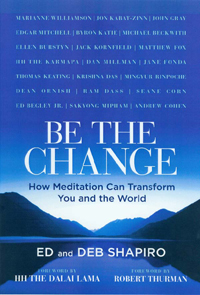
"The only thing we have to fear is fear itself," Franklin D. Roosevelt said in his first inaugural address.
There is a lot of fearmongering going on at the moment. Fingers are being pointed. Rage is being tossed around. Tea Partiers, Republicans and Democrats alike are spreading fear by the bucketload: Obama is a Muslim Nazi, headless bodies litter the Arizona desert, O'Donnell is a witch casting devious spells, etc. In other words, fear has become the modus operandi. All this is intended to make us quake in our boots, be fearful of the "opposition" and cast our vote for the most reassuring voice, regardless of far-fetched imaginations and downright lies.
Fearmongering is easy, as ex-NPR analyst and current FOX employee Juan Williams shows us when he says that he gets nervous when he is on a plane with Muslims. Immediately, all his listeners feel a sense of empathy for him; it kindles their own fear, however unfounded it may be. It shows how, when a seed of fear is planted in our mind, it can generate instability to the point of becoming paranoia and can spread like wildfire.
As it spreads, it reassures us that we are not alone in this unfounded fear, that we are right to believe the enemy is the "other." We become powerless, rather than a master of our own thoughts and feelings. In this way, fear is often used as a weapon of control and intimidation.
In defense of firing Williams, NPR ombudsman Alicia Shepard pointed out that Williams' comments were "deeply offensive to Muslims" and that it "was doing the kind of stereotyping in a public platform that is dangerous to a democracy. It puts people in categories, as types -- not as individuals with much in common despite their differences."
Fear has many faces, many disguises. There is fear that is a natural response to physical danger, and then there is fear that is self-created, such as fear of failure, of the dark, of being out of control, being different, lonely, or of other people's negative influence. Just as we used to fear communism, now we fear Muslims. And fear easily becomes racism, as Juan Williams also said in 1986: "Racism is a lazy man's substitute for using good judgment ... Common sense becomes racism when skin color becomes a formula for figuring out who is a danger to me."
Fear distorts our understanding of what is really happening, like a dirty windshield through which we cannot see clearly. Michael Moore succinctly reminds us of the reason for the terrorist attacks: "Terrorists aren't trying to kill us because they hate our freedom. They're killing us because we're in their countries killing them."
Ultimately, fear is about survival of the ego, the "me" at all costs, especially when the insubstantial structures we have created to keep us feeling safe are, in our limited view, being threatened. The ego-mind casts a shadow of fear of potential loss and destruction. Many of us live our whole lives this way, with shadows haunting us like ghosts wherever we go.
When fear is in control, we become resistant to change and spontaneity; we get angry, defensive, hidden behind self-constructed walls of protection, which reinforces separateness, isolation and enmity. Fear arises when the ego-mind is threatened or undermined, making us cling to the known and reject anything that is unfamiliar; in so doing we surrender our sensibility and rationality.
As long as we deny or ignore fear, it will hold us captive, emotionally frozen, unable to move forward. Trying to run away from, ignore, or stop fear will simply create more tension. It is transformed only when we can turn around and face it, get to know it, release resistances and fixed ideas, and speak with our own voice. It cannot affect us when we are strongly rooted in truth.
In our book "The Way Ahead," Yoko Ono said, "Bless you for your fear for it is a sign of wisdom. Do not hold yourself in fear. Transform the energy to flexibility and you will be free from what you fear."
How do you deal with fear? Do comment below.
***
You can receive notice of our blogs every Tuesday by checking Become a Fan at the top.
See our award-winning book, "Be the Change: How Meditation Can Transform You and the World," with forewords by the Dalai Lama and Robert Thurman and contributions from Marianne Williamson, Krishna Das, Jane Fonda, Ram Dass, Cyndi Lee, Byron Katie, Seane Corn, Richard Freeman and others.
Our three meditation CDs -- "Metta: Loving-Kindness and Forgiveness"; "Samadhi: Breath Awareness and Insight"; and "Yoga Nidra: Inner Conscious Relaxation" -- are available at www.EdandDebShapiro.com.
And see our blogs on Oprah.com/spirit.
